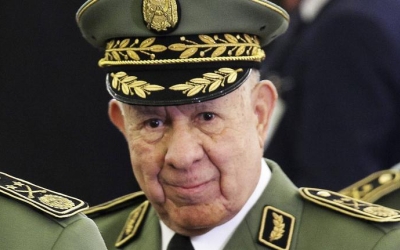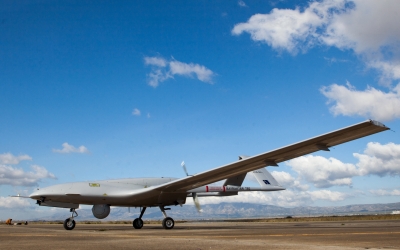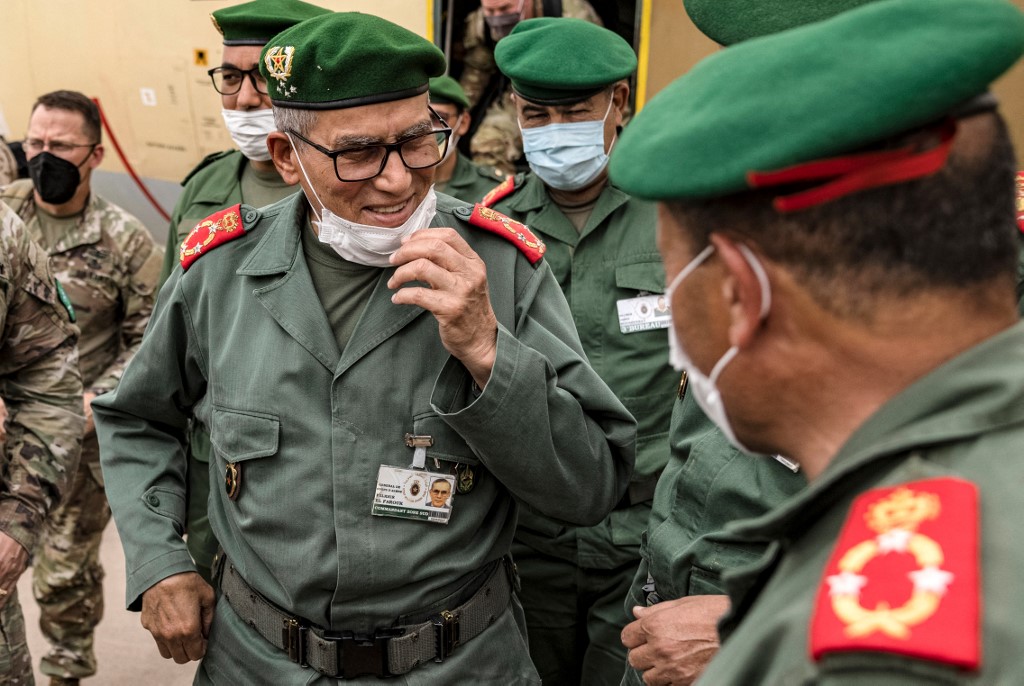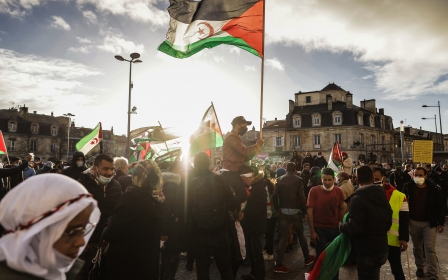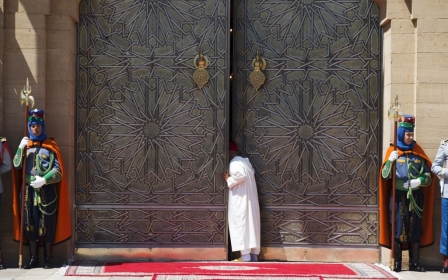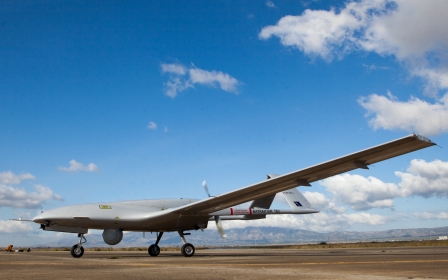Morocco and Algeria: Is a military showdown coming?
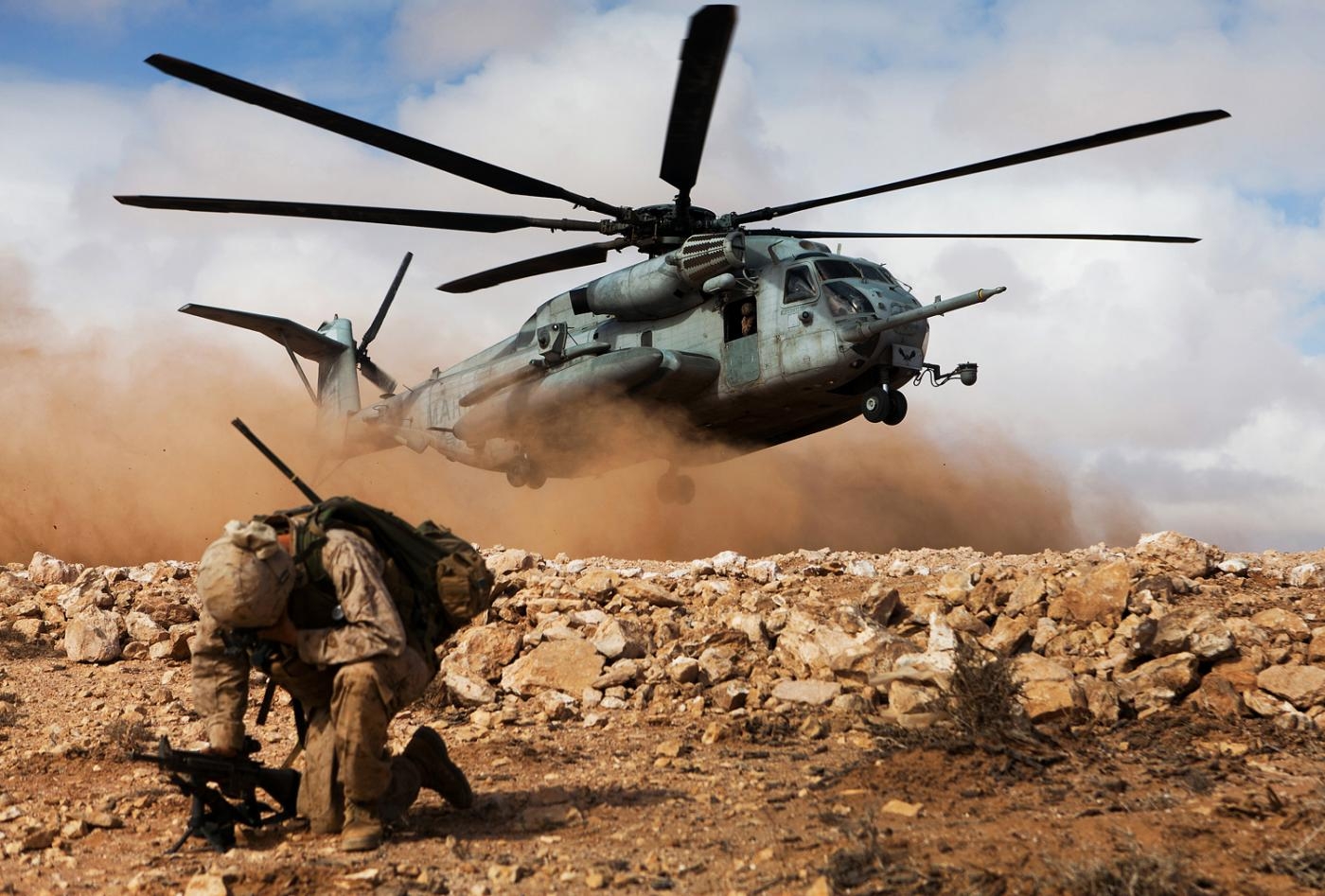
Since severing diplomatic ties with Rabat on 24 August, Algeria’s relations with neighbouring Morocco have grown increasingly fraught.
First came the Algerian energy minister’s announcement that the contract for the Maghreb-Europe gas pipeline, which distributes natural gas to Spain, would not be renewed - halting to all intents and purposes gas supplies to Morocco.
Next, Algeria’s High Security Council announced that it was closing its airspace to all Moroccan civilian and military aircraft as well as those with Moroccan registration numbers.
More recently, on 28 September, Algerian Chief of Staff Lieutenant General Said Chengriha accused the Moroccan kingdom of plotting a "conspiracy" against his country “to undermine the unity of the Algerian people, by sowing discord and division among them”.
“Algeria’s attachment to its principles and its determination not to deviate from them are a source of irritation to the Makhzen [Morocco’s governing institution], and an impediment to the regime’s questionable regional projects,” the lieutenant general is quoted as saying.
Given the recent turn of events, it is impossible to believe that Morocco’s King Mohammed VI will be content to simply wield the soft power of consensus and regional cooperation once again.
Forget about the speeches of December 2019, when the Moroccan monarch appealed to the newly elected president of Algeria, Abdelmadjid Tebboune, urging him “to open a new chapter in the relations between the two neighbouring countries, based on mutual trust and constructive dialogue”, and of August 2021, when Mohammed VI urged “his excellency the Algerian president to work in unison for the development of fraternal relations”.
Western Sahara
The Moroccan policy of supposedly "reaching out" is perhaps a mere smokescreen aiming to hide the regime’s true intentions - of forcing the Algerian generals to initiate hostilities.
In short, Mohammed VI, the supreme commander and chief of general staff of the Royal Armed Forces (FAR), appears bent on using military force to defend the kingdom’s claims to what it considers its so-called "southern provinces", the term used by Morocco's government for the section of Western Sahara occupied by it.
In a carefully calculated move aimed at neutralising the reach of the Moroccan military - which had formerly attempted a coup under the rule of King Hassan II - Mohammed VI placed the security of the royal palace and compound in the hands of the country’s armed forces.
Palace security had up till then been overseen by the Moroccan Royal Gendarmerie and the General Directorate for National Security. Next, the monarch stepped up the modernisation of the kingdom’s armed forces, in response in particular to the Arab Spring uprisings that saw the toppling of several of the region’s authoritarian regimes.
In practical terms, Morocco’s national defence was reorganised under the direction of Lieutenant General Abdelfattah Louarak, named as inspector general of the FAR by the king in January 2017. The monarch did not replace his predecessor, General Bouchaib Arroub, then in command of the country’s southern provinces.
The primary mission of the newly appointed senior officer was to oversee operations for developing and modernising Morocco’s military industry - with a colossal budget representing roughly 4.5 percent of the country’s GDP in 2020.
Numbers released in 2018 by the Stockholm International Peace Research Institute (Sipri) show that other countries involved in conflict zones spend less on national defence, including Israel (4.3 percent), the United States (3.2 percent) and Turkey (2.5 percent).
Following this first phase, the Moroccan monarch now seems to be wielding the hard power of military and economic pressure, in an attempted strategic play by Rabat to bend the will of Algiers.
It is a move that Algerian diplomats are well acquainted with, having long used it themselves to contain the manoeuvres of Morocco’s foreign ministry - witness the countless large-scale military operations organised by the Algerian army in each of its militarised regions, and especially on the Moroccan border. One such show of military force was conducted in January 2021, with the backing of Russia.
Unmistakable message
According to the Sipri annual report of 2021, Morocco is now the third-largest arms importer in Africa, just behind Egypt and Algeria.
The Moroccan regime seems determined to respond to Algeria’s acts of diplomatic hostility with military action, as Mohammed VI’s recent appointment of Lieutenant General Belkhir el-Farouk’s as inspector general of the FAR goes to show.
A laureate of the Royal Military Academy, Farouk began in the infantry, before occupying several key military positions, including commander of the southern provinces, the position he filled for nearly 40 years and that has been virtually vacant since 2017.
The appointment of a senior officer whose credentials include several military campaigns in Western Sahara is an unmistakable message to Algiers: Rabat is ready to respond with military force if Algeria’s generals continue pressuring Morocco and ultimately initiate hostilities.
Reports also suggest that the newly appointed commander of Morocco’s armed forces is a favourite with the Americans. Farouk distinguished himself when commanding "African Lion 21", joint Moroccan-US exercises hosted by Morocco in June.
Diplomatic jockeying
On the diplomatic stage, Algerian Foreign Minister Ramtane Lamamra and his Moroccan counterpart, Nasser Bourita, exchanged sharp words over Western Sahara at the UN general assembly on Monday.
“The organisation of a free and fair referendum to allow the Sahrawi people to determine its destiny and decide its political future cannot remain forever hostage to the intransigence of an occupying state that has repeatedly failed to meet its international obligations,” the Algerian minister said.
But in a pre-recorded video shown at the UN assembly, Morocco’s foreign minister said Algeria needed to “shoulder its responsibility for perpetuating an invented regional conflict”, demanding that Algiers stop protecting “a group of armed separatists in gross violation of international humanitarian law”.
Algeria has openly backed the Polisario Front separatist movement, which defends the right of the Sahrawi people to self-determination
Algeria has openly backed the Polisario Front separatist movement, which defends the right of the Sahrawi people to self-determination.
Morocco meanwhile claims sovereignty over Western Sahara and sees its “extended autonomy proposal” as a solution to the conflict.
Their untimely mediatised exchange just happened to come after the African Lion 21, but also just after the strengthening of military cooperation between Rabat and Washington.
The Moroccan kingdom therefore continues to enjoy the support of the Americans, especially following the recognition by former US President Donald Trump of Morocco’s claims to Western Sahara, in exchange for the normalisation of relations between Morocco and Israel.
Demons of war
The regime of Mohammed VI seems convinced it is sufficiently "covered" by two world powers - the US and Israel - to attempt to stand up to the Algerian generals supporting the Polisario movement.
But memories of the Sand War border conflict of 1963 between Algeria and Morocco have yet to fade.
And so the conflict over Western Sahara continues to plague diplomatic relations between Morocco and Algeria, shaping to this day the policies and tactics of both nations, and potentially awakening the old demons of war.
This is especially true in the run-up to the appointment of the new UN special envoy for Western Sahara, the Italian-Swedish diplomat Staffan de Mistura, with current negotiations between Morocco and the Polisario Front at a standstill, and the voices that preach appeasement and conciliation being consistently ignored.
The views expressed in this article belong to the author and do not necessarily reflect the editorial policy of Middle East Eye.
This article has been translated from the MEE French edition.
Middle East Eye propose une couverture et une analyse indépendantes et incomparables du Moyen-Orient, de l’Afrique du Nord et d’autres régions du monde. Pour en savoir plus sur la reprise de ce contenu et les frais qui s’appliquent, veuillez remplir ce formulaire [en anglais]. Pour en savoir plus sur MEE, cliquez ici [en anglais].



